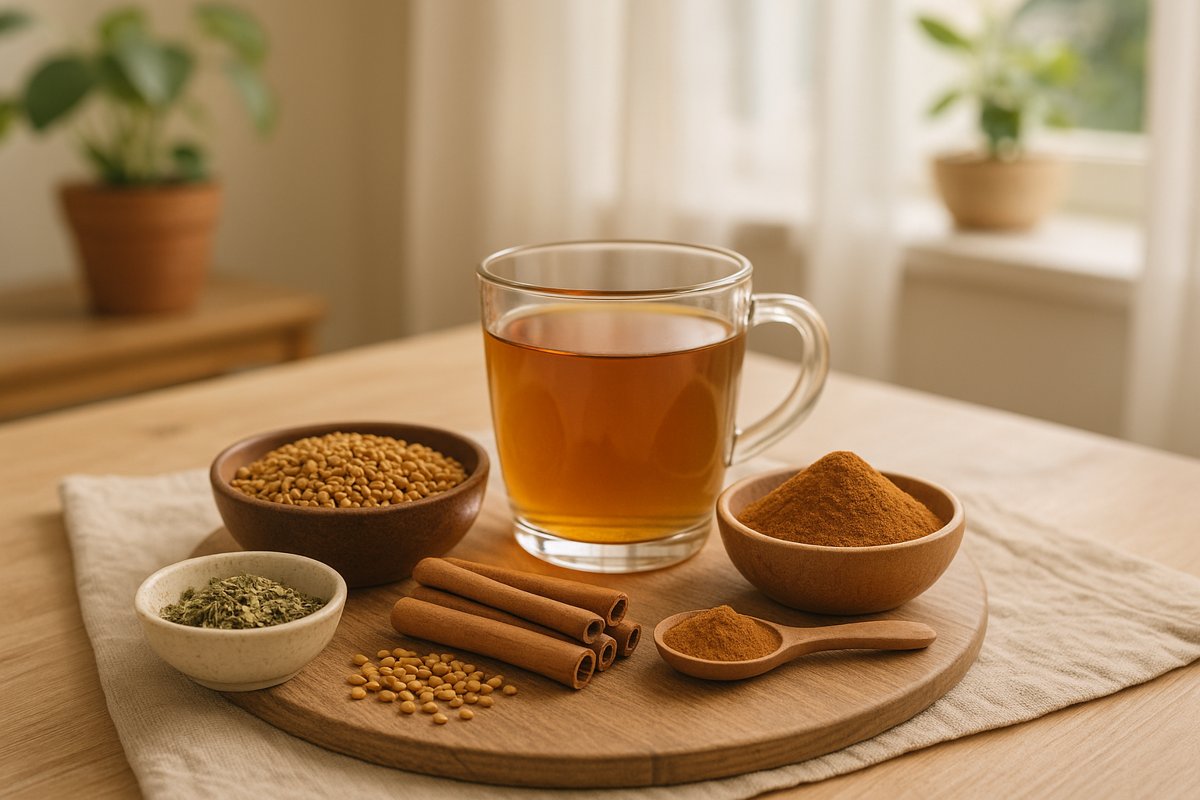Polycystic Ovary Syndrome (PCOS) is a growing concern among women, affecting hormonal balance, metabolism, and reproductive health. While conventional treatments often focus on symptom management, Ayurveda takes a holistic route—targeting the root imbalances within the body to restore harmony.
Let’s explore how Ayurveda addresses PCOS by balancing Kapha and Pitta doshas, using time-tested herbs like cinnamon and fenugreek, practicing mindful eating, and embracing hormone-balancing yoga.
PCOS & the Kapha-Pitta Connection
According to Ayurveda, PCOS is primarily linked to an imbalance in Kapha and Pitta doshas. Excess Kapha leads to weight gain, sluggish metabolism, and cyst formation, while aggravated Pitta can disrupt hormonal regulation and lead to inflammation and acne.
Balancing these doshas involves dietary regulation, detoxification, stress management, and the use of supportive herbs and routines.
Cinnamon & Fenugreek: Ayurvedic Allies
1. Cinnamon (Tvak)
Cinnamon helps regulate blood sugar levels and improves insulin sensitivity, which is crucial for managing PCOS. It also stimulates digestion and supports healthy menstruation.
How to use: Add a pinch of cinnamon powder to warm water or herbal tea daily.
2. Fenugreek (Methi)
Fenugreek seeds are known to improve insulin resistance, support ovarian function, and reduce excess androgens. It helps in restoring menstrual regularity.
How to use: Soak 1 tsp fenugreek seeds overnight and consume on an empty stomach.
Explore our: Women’s Health Products
Mindful Eating for Hormonal Balance
Ayurveda emphasizes that how you eat is just as important as what you eat. Mindful eating can help regulate digestion, metabolism, and hormone production.
Tips for mindful eating:
• Eat at regular times each day
• Avoid eating while distracted
• Favor warm, cooked foods over cold, processed items
• Incorporate spices like cumin, turmeric, and coriander to aid digestion
Yoga for Hormonal Harmony
Gentle yoga and breathing exercises support hormonal balance, reduce insulin resistance, and calm the nervous system. Poses that enhance circulation to the pelvic region and regulate endocrine glands are particularly helpful.
Recommended yoga poses:
• Baddha Konasana (Butterfly Pose)
• Bhujangasana (Cobra Pose)
• Setu Bandhasana (Bridge Pose)
• Nadi Shodhana (Alternate Nostril Breathing)
Free Ayurvedic Consultation for Women
PCOS varies from woman to woman. Get personalized guidance, diet charts, and herbal plans with a certified Ayurvedic doctor online.
Click here to get your Free Online Ayurveda Consultation.
Final Thoughts
Ayurveda offers women a gentle, natural path to overcoming PCOS. By balancing Kapha and Pitta doshas, adopting mindful habits, and using hormone-supportive herbs, you can take charge of your health—inside and out.
Avail a free Ayurvedic consultation at the Ayur store.
Also, Check out – IBS & Irritable Gut: Why Triphala Is Your Night-Time Friend






